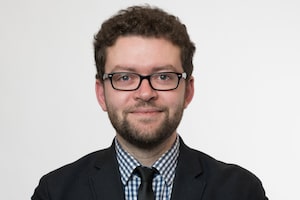Prime Minister Justin Trudeau delivers some opening remarks at the start of caucus, Thursday, November 5, 2015 in Ottawa. THE CANADIAN PRESS/Adrian WyldThe Canadian Press
This is the Globe's daily politics newsletter. Sign up to get it by e-mail each morning.
As a new party moves into power, the machinery of government is changing in small but important ways. According to the Privy Council Office, the government's senior bureaucrats, these are some of the first decisions of Justin Trudeau's cabinet.
> Name changes: The swearing-in signalled some changes ("Aboriginal Affairs Minister" becomes "Indigenous Affairs Minister," for example) but departmental names are changing, too. "Foreign Affairs, Trade and Development" will become "Global Affairs," and "Industry Canada" will become "Innovation, Science and Economic Development Canada."
> Trudeau: In addition to being Prime Minister, he is also taking on the intergovernmental affairs portfolio himself, and becoming the Minister of Youth.
> Junior ministers: It appears that, because of their portfolios, four cabinet ministers (all women) are actually ministers of state styled as full ministers. Mr. Trudeau will have to clarify whether they will be getting the full ministerial salary, or the smaller allowances for being so-called junior ministers. (A fifth, Marie-Claude Bibeau, is a minister of state for La Francophonie, but also Minister of International Development.)
> Canada Post: The crown corporation is no longer the purview of Transport, but is now under Public Works (renamed Public Services and Procurement).
> Heritage: Montreal MP Mélanie Joly will now oversee the National Capital Commission, which, under the Harper government, was the responsibility of a senior minister from Ottawa. The Heritage Minister will also be responsible for multiculturalism, which had previously fallen under Immigration.
> Spending: The six regional development agencies will no longer have their own ministers responsible for doling out funding in each region. Instead, all of them will be overseen by Navdeep Bains, the Innovation, Science and Economic Development Minister.
> Next in line: If anything happened to Mr. Trudeau, here's the list of who would succeed him, starting with Ralph Goodale, Lawrence MacAulay and Stéphane Dion.
> And Mr. Trudeau has terminated the contract of Timothy Wasylko, the executive chef of the prime minister's residence. (Apparently new PMs firing chefs is a tradition. The Ottawa Sun has more.)
WHAT YOU SHOULD KNOW THIS MORNING
> Rona Ambrose is the new interim leader of the Conservatives and the Leader of the Official Opposition. She's been an Edmonton MP since 2004 and, under Stephen Harper, was minister at times of the environment, public works and health.
> Brian Mulroney urged his fellow Conservatives to come together in selecting a new leader and to include Mr. Harper in that process. "This is a time to heal old wounds, not to settle old scores," he said.
> Environment Minister Catherine McKenna is getting a crash-course in climate summitry ahead of the international meeting in Paris.
> Dominic LeBlanc may be Mr. Trudeau's deputy prime minister in all but name.
> Mr. Trudeau hasn't yet decided on aid for Bombardier.
> The Liberals want to consult Canadians on the 6,000-page Trans-Pacific Partnership deal before ratifying it.
> The Liberals are restoring the long-form census in time for the 2016 survey. Tony Clement, industry minister at the time the census was made voluntary, says maybe the Conservatives shouldn't have done that after all.
> And from one kid of 24 Sussex to another: Ben Mulroney has some parenting advice for Mr. Trudeau. "I realized early on that it was not about always being present all the time, it is about always being a presence."
TO THE RIGHT
Rona Ambrose inherits a party that could be in worse shape. But John Ibbitson warns (for subscribers) that the Conservatives are in danger of having their party captured by extremists.
WHAT EVERYONE'S TALKING ABOUT
"Parliament has been structured for so long to be almost completely adversarial, with parties imposing the tightest control on members, that the news media feasts on the smallest sign of dissent because dissent is 'news.' If, however, a degree of dissent is allowed within a party, and therefore becomes the norm rather than 'news,' will the media adjust the coverage?" – Jeffrey Simpson (for subscribers) on what to do with the Liberal backbenchers.
Gary Mason (Globe and Mail): "While Mr. Trudeau has a long list of priorities, responding to [the Syrian refugee] crisis has to be chief among them."
David McLaughlin (Globe and Mail): "[Justin Trudeau has made] the most significant restructuring of cabinet governance since the short-lived 1993 Kim Campbell government."
Michael Den Tandt (Postmedia): "Perhaps most importantly, Ambrose will need to avoid the temptation to try to be all things to all people."
Christie Blatchford (Postmedia): "I have to say, such moments greatly endeared Trudeau to me. It would have been so easy to hit these big sloppy softballs out of the park with rank sentiment, but he declined manfully."
This newsletter is produced by Chris Hannay and Steve Proceviat.
Welcome to the Globe Politics newsletter! Let us know what you think.
 Chris Hannay
Chris Hannay